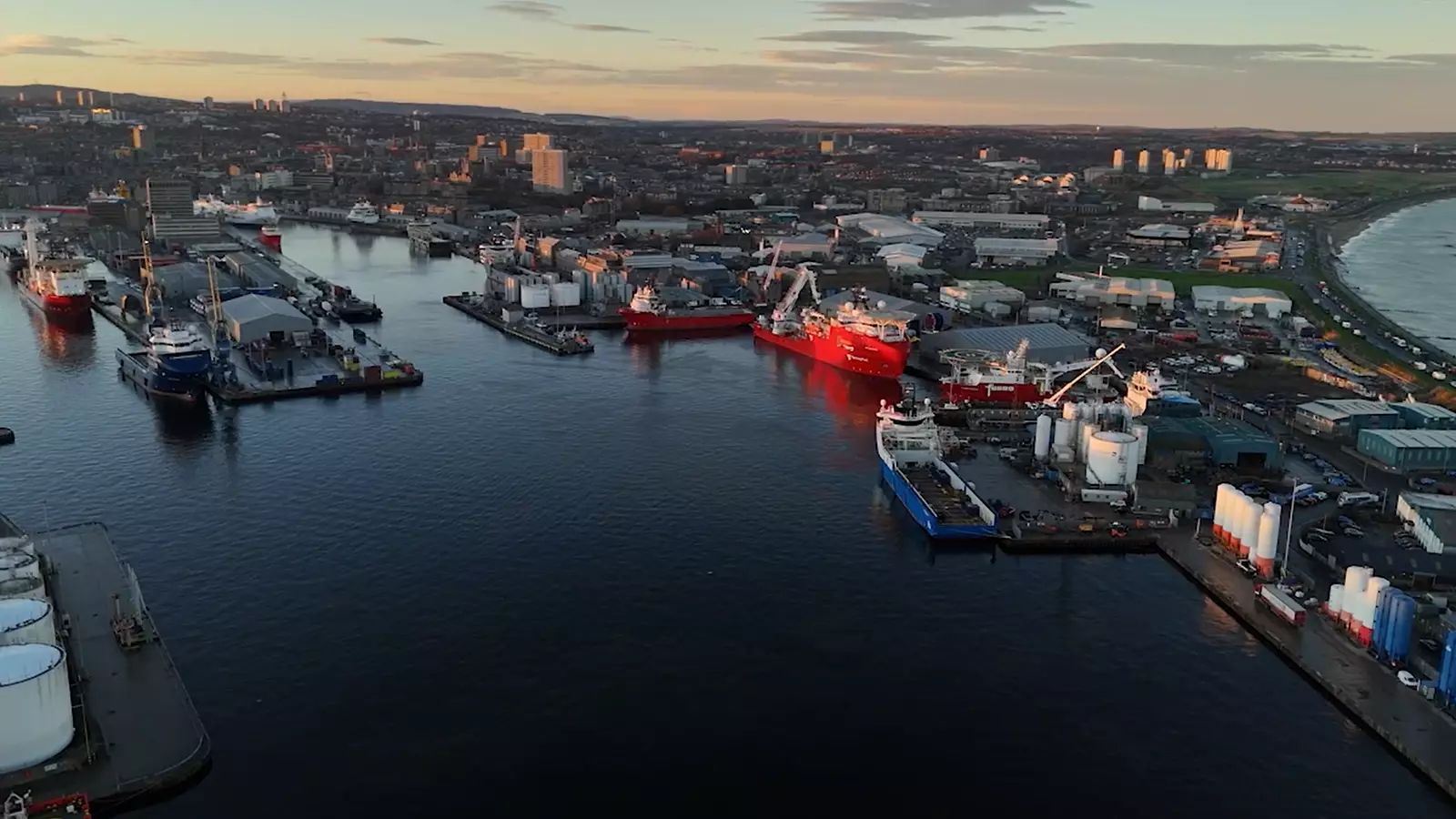The formation of GB Energy, a state-owned initiative aimed at advancing renewable energy in the UK, arrives with significant expectations, particularly in regions like Aberdeen. Sir Keir Starmer, leader of the Labour Party, has put forth a promise to create 1,000 jobs in this northeast Scottish city as part of a broader green initiative. However, recent statements from Juergen Maier, the newly appointed chairman of GB Energy, suggest that achieving these goals may require a lengthy timeline of up to 20 years. This revelation has sparked a heated discussion about the practicality of such promises, especially in light of the current energy crisis in the North Sea.
The Labour Party’s pledge is not just a spur-of-the-moment decision; it emerges from a comprehensive vision intended to benefit working-class families by potentially reducing energy bills by £300. This prospect resonates deeply with consumers who are currently burdened by rising costs. Maier’s declarations reveal an evident dissonance between immediate consumer expectations and the envisioned long-term benefits. The assertion that GB Energy may only deliver 200 to 300 jobs within its initial five years, contrasted with the goal of reaching 1,000 jobs in two decades, raises questions about the efficacy of the initiative’s implementation strategy.
The ramifications of these promises ripple outwards, affecting not only political credibility but the livelihoods of thousands. The chief executive of the Aberdeen and Grampian Chamber of Commerce, Russell Borthwick, encapsulates the local sentiment of uncertainty as he points out that many in the existing oil and gas sector are feeling disillusioned. This anxiety is compounded by the fact that quick wins are necessary to bolster confidence in GB Energy’s capacity to transition a workforce accustomed to immediate, stable jobs into the greener, but uncertain, realm of renewable energy.
Worryingly, the ambitious goals of GB Energy come at a time when the North Sea oil and gas sector is facing a crisis. With tens of thousands of professionals reliant on this industry, the transition to renewable energy must be managed with sensitivity and efficiency to avoid exacerbating economic vulnerability in the region. Unions have expressed concern that GB Energy risks over-promising and under-delivering, a point echoed by Unite’s Scottish Secretary, Derek Thomson. His warning of possible “desolation” in northeastern communities should GB Energy fail to catalyze new, substantial job opportunities is a clarion call for urgency.
Equally troubling is the risk that GB Energy may falter in establishing a clear roadmap to navigate its uncertain terrain. The energy sector in regional contexts can be volatile and requires quick momentum to thrive. As Richard Hardy from Prospect states, a lack of transparency in the plan for job creation will likely foster a perception of failure if results fall short of the lofty expectations set forth.
In order for GB Energy to have any chance at success, a well-orchestrated strategy must be developed and communicated to all stakeholders. This strategy should include specific milestones, timeframes, and targets that can be realistically met. The initial push for 200 to 300 jobs needs to be underpinned by concrete plans with stakeholder engagement to secure private investment, an essential component for the viability of renewables.
Moreover, as the climate crisis looms over energy strategies, GB Energy must ensure that expansion is not only postponed to the distant future but begins now. This requires proactive cultivation of skills in the local workforce to transition smoothly from fossil fuels to green energy solutions while creating a sustainable legacy for the region.
The establishment of GB Energy brings a mixture of hope and skepticism. The promise of renewable energy jobs in a struggling region such as Aberdeen must be handled with both ambition and realism. A clear, actionable plan is crucial to translating political promises into tangible benefits for the community. As stakeholders watch closely, aspirations for a thriving green sector hinge upon the energy company’s ability to deliver on its high-profile commitments sooner rather than later. For the people of Aberdeen, the clock is ticking, and the future of their livelihoods hangs in the balance.



Leave a Reply